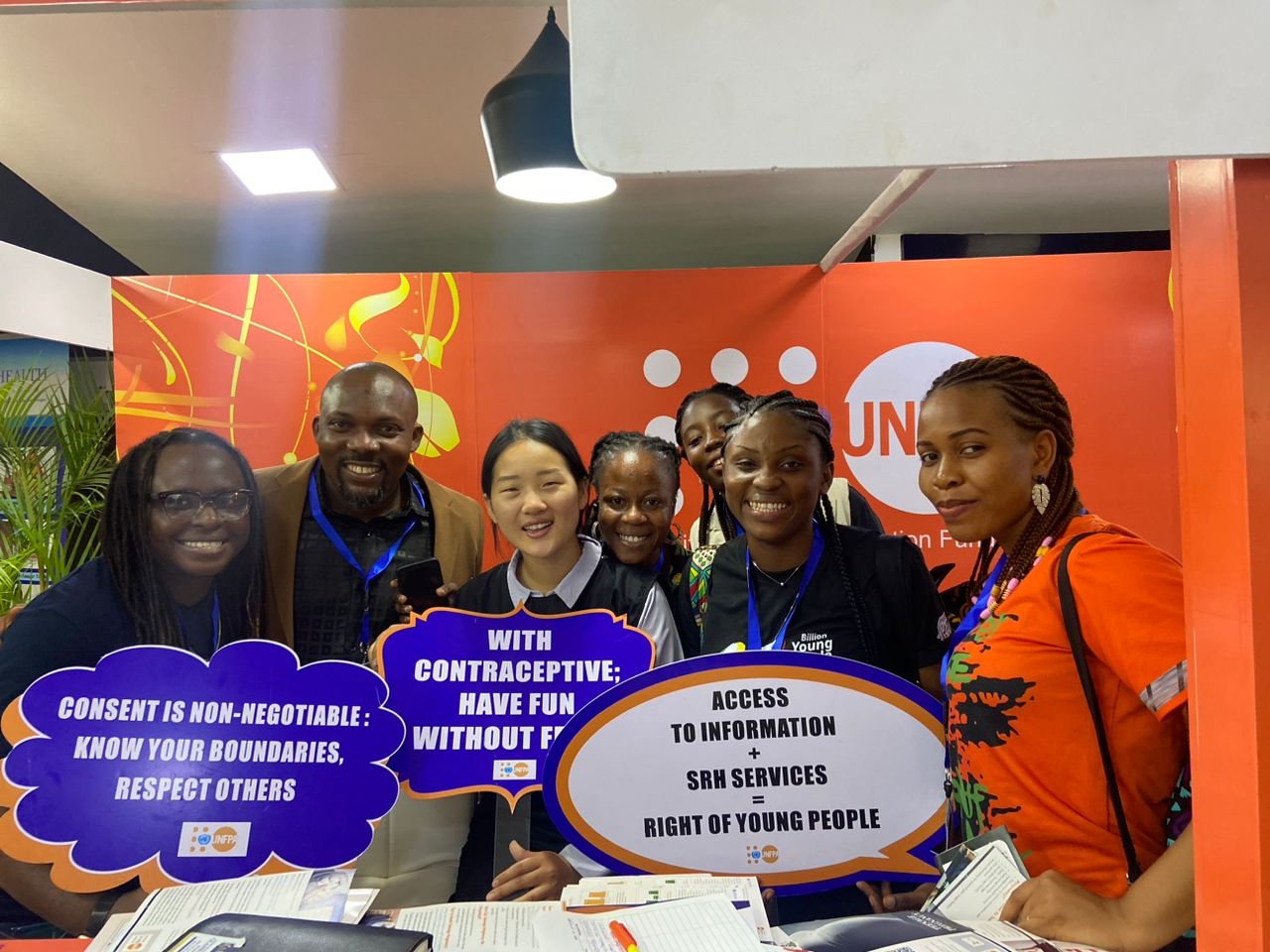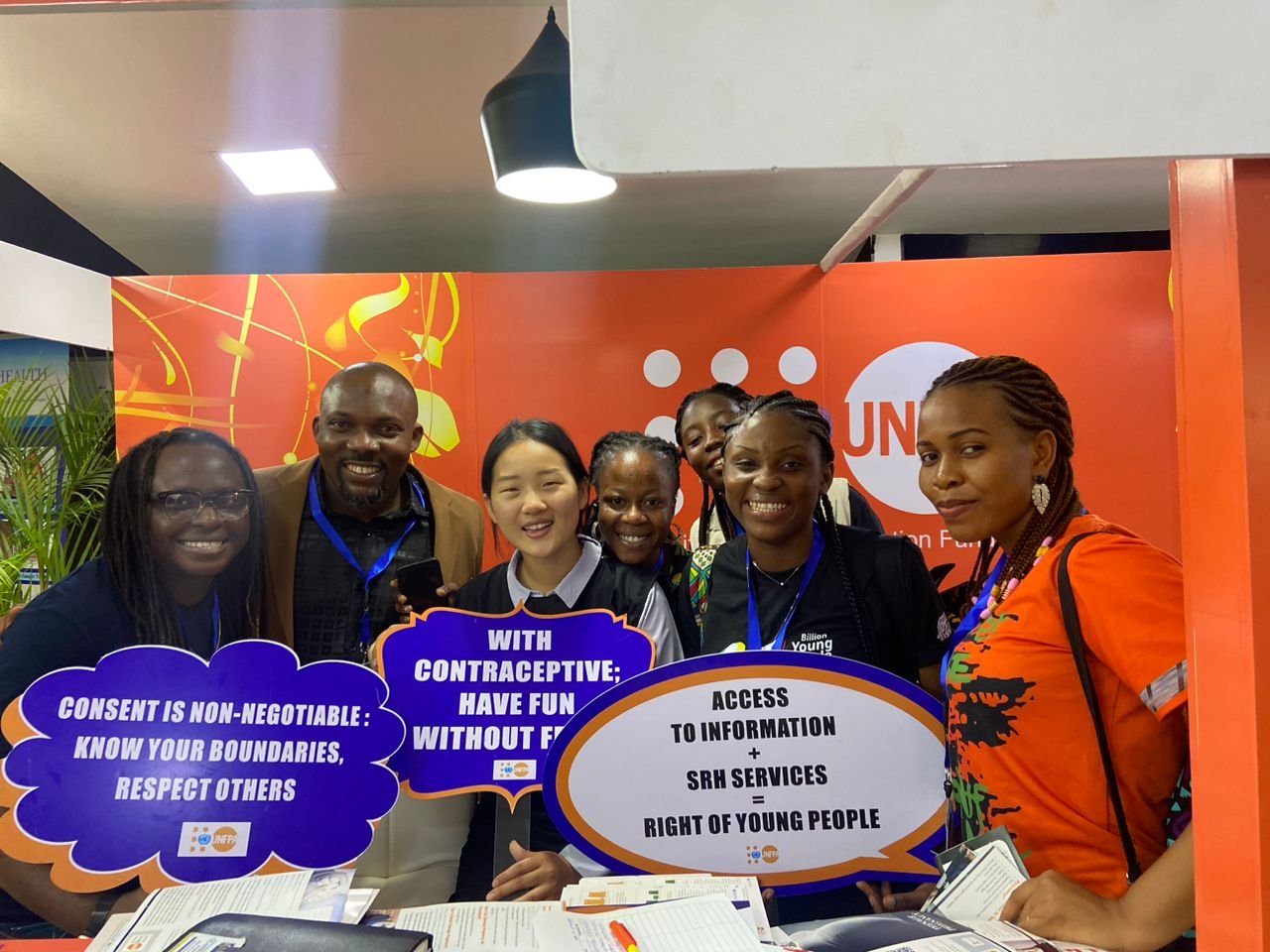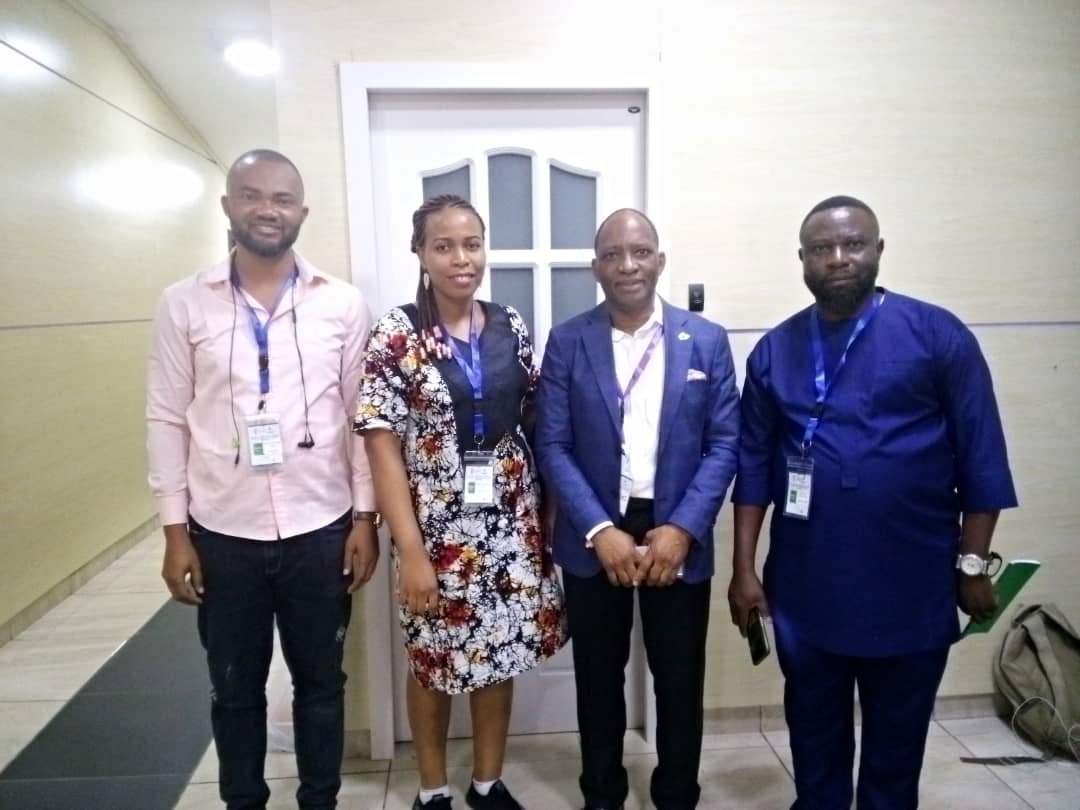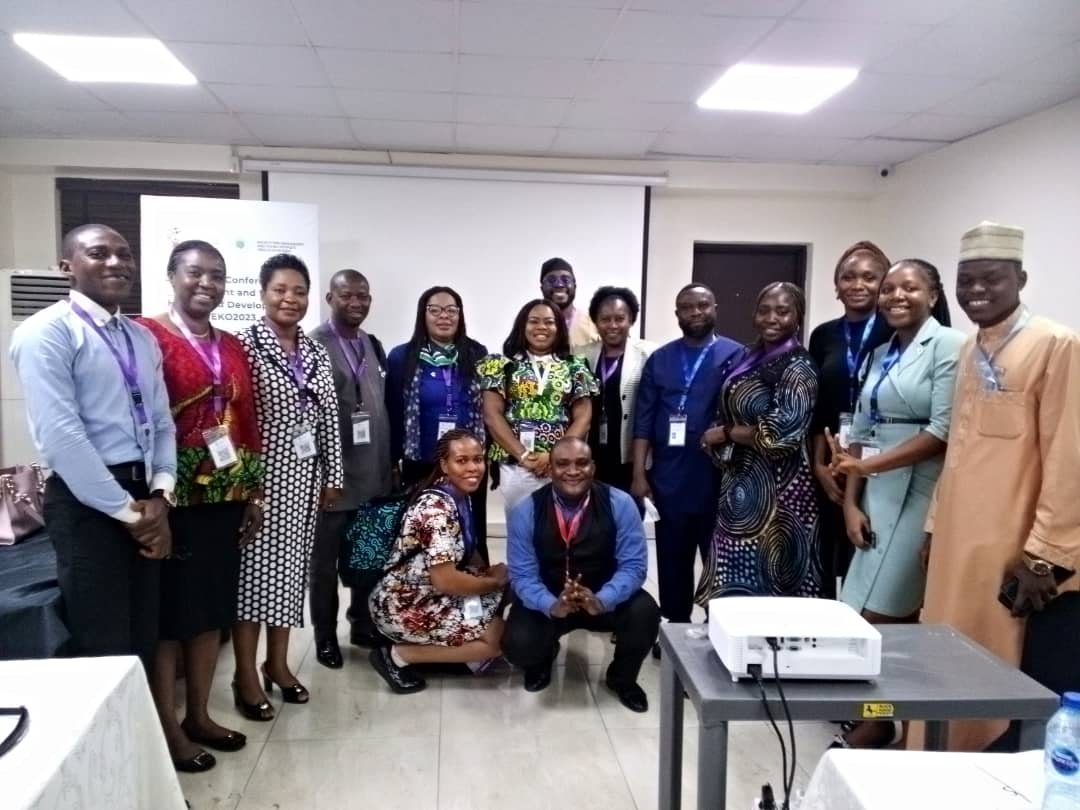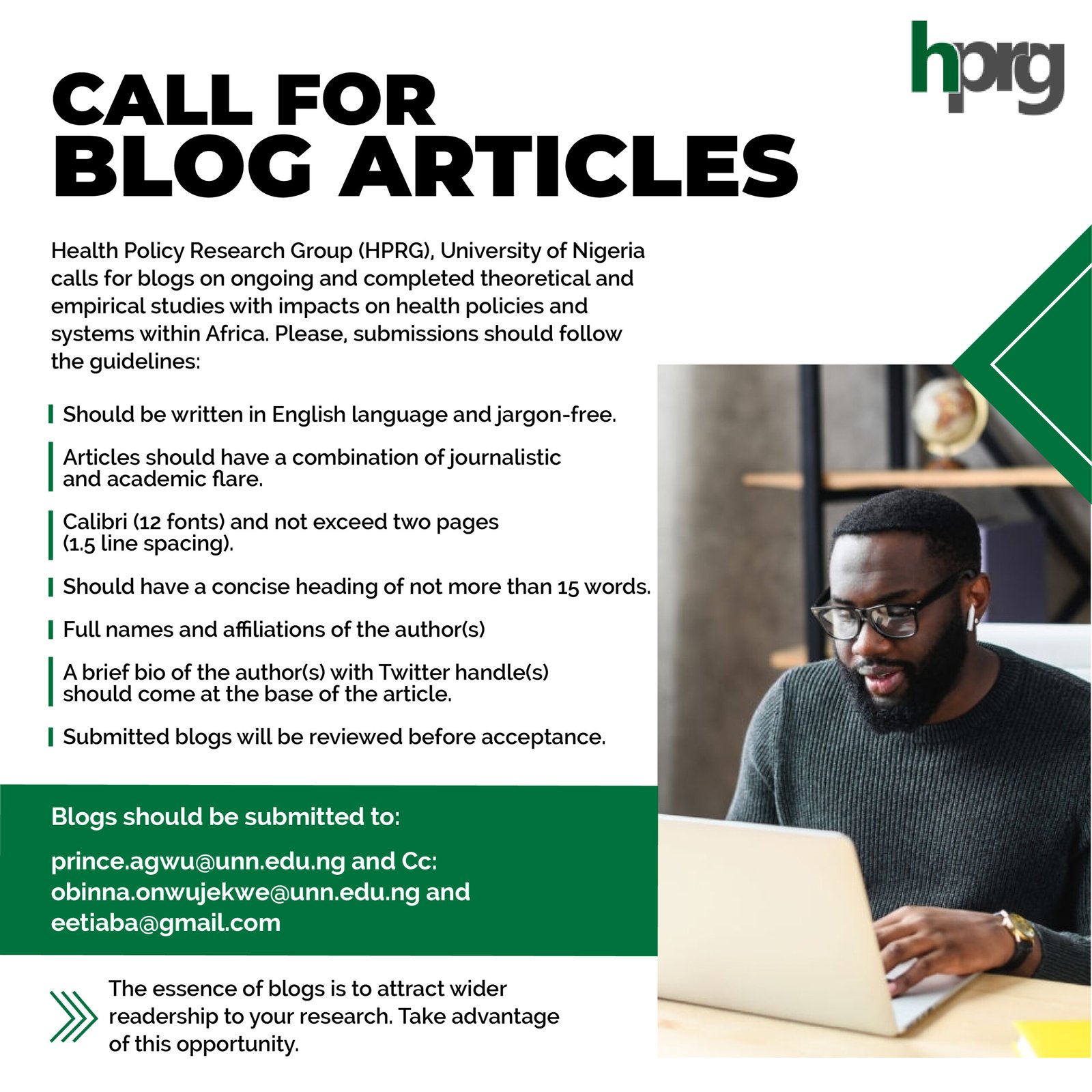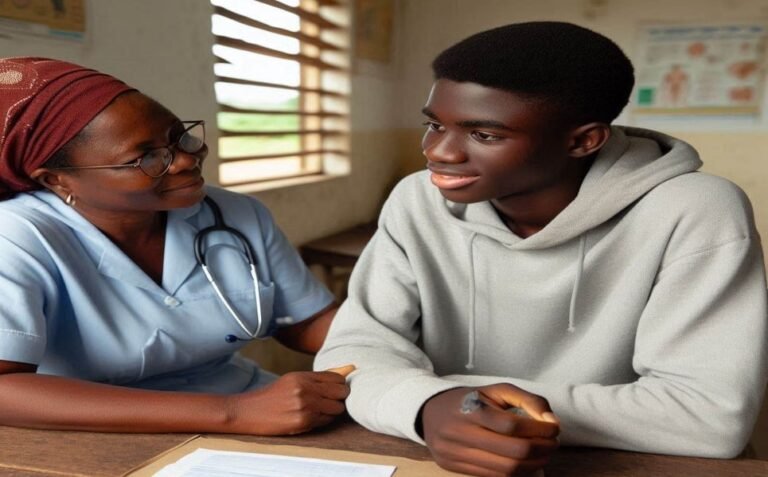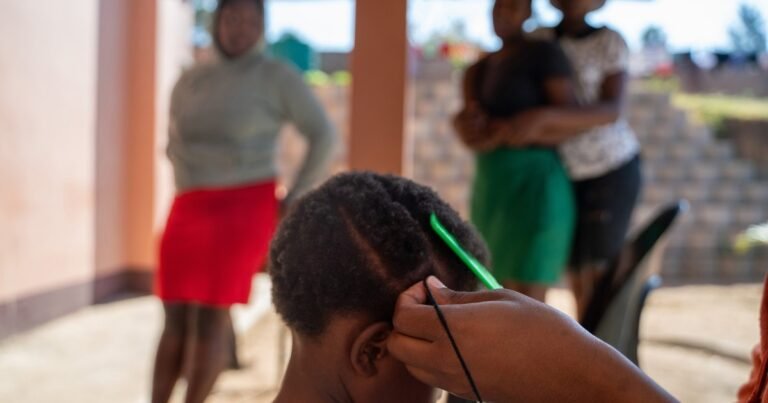The 3rd Nigeria Conference on Adolescent and Youth Health and Development organized by the Society for Adolescent and Young People’s Health in Nigeria (SAYPHIN) took place at the Zone Conference Center Gbagada, Lagos, Nigeria. The conference started on the 16th of August and concluded on the 19th of August, 2023. The theme was EKO2023 – Achieving 2023 Targets: Driving Innovation for Adolescent and Youth Health.
The Health Policy Research Group, University of Nigeria contributed to the conversation by presenting six different outputs from its over 3 years of research on adolescents and sexual and reproductive health services in Ebonyi State, Nigeria.
Presentation 1
Unequal power relations between healthcare providers and young clients: barriers to accessing Sexual and Reproductive Health services in Ebony State, southeast Nigeria
Presented by Chibuike Agu
This was a cross-sectional study using qualitative data collection methods. Power dynamics between providers and young clients occurs on the basis of different social stratifiers. The provision of youth-friendly health services in the state is adversely influenced by the power imbalance between providers and young clients. Findings showed the various forms of expression of power by service providers towards young people seeking sexual and reproductive health care. Healthcare providers do not respect the SRH rights of young people. Thus, they often dictate the type of services young people should have. Sometimes, healthcare providers deny certain forms of SRH services. They also verbally abuse young people and report them to their parents or school authorities as punishment for accessing SRH care. The effect of the power imbalance is that young people feel humiliated, ashamed, or scared to visit health facilities for SRH services.
How to cite: Agu C, Agu I, Mbachu C, Onwujekwe O (2023). Unequal power relations between healthcare providers and young clients: barriers to accessing Sexual and Reproductive Health services in Ebony State, southeast Nigeria. Presented at EKO 2023 Conference from 16th to 19th August.
Presentation 2
Effects of a School Health Intervention on Adolescents’ Knowledge of Sexual and Reproductive Health Issues in Ebonyi State, Southeast Nigeria
Presented by Chibuike Agu
This study evaluated the impact of a school-based health intervention on the knowledge of SRH among adolescents in six local government areas of Ebonyi State, Nigeria. The study applied the matching method of impact evaluation using ‘synthetic’ controls. Data were collected from 503 adolescent boys and girls aged 13–18, using a pretested structured, interviewer-administered questionnaire. Participants were selected through simple random sampling technique. A significantly higher proportion of respondents who participated in the intervention (94.16%) had good knowledge of SRH compared to those who did not participate in the intervention (85.77%), p = 0.002. Female adolescents were 3.2 times less likely to have good knowledge compared to male adolescents. Other predictors of good knowledge about SRH include living in rural areas and participating in the intervention. The school-based intervention improved the knowledge of SRH issues among adolescents. The adoption and scale-up of such interventions should ensure that there is equal participation of girls, junior students, working adolescents, and those who reside in urban areas.
How to cite: Agu C, Mbachu C, Agu I, Ebigbiremolen G, Iloabachie U, Agu O, Onwujekwe O (2023). Effects of a School Health Intervention on Adolescents’ Knowledge of Sexual and Reproductive Health Issues in Ebonyi State, Southeast Nigeria. Presented at EKO 2023 Conference from 16th to 19th August.
Presentation 3
Determinants of health service providers’ attitude towards equitability in sexual relationships in south-east Nigeria.
Presented by Ozioma Agu
Understanding the beliefs and attitudes of health service providers toward gender equitability in sexual relationships is significant in designing interventions for the effective delivery of gender-equitable youth-friendly sexual and reproductive health (SRH) services. This study examines health service providers’ attitudes toward young girls’ and young boys’ expectations in sexual relationships. This was a cross-sectional study carried out in six local government areas in Ebonyi State, Southeast Nigeria. The findings show that a good number of respondents 104(40.78%) agreed that young men and women should have sex before they become engaged to see whether they are suited for each other. Further analysis showed that health service providers whose health facilities are located in urban areas were more likely to have negative attitudes towards male expectations (t-value= -2.04) in sexual relationships by 18%. Health service providers’ attitudes toward equitability in sexual relationships underline the need to prioritize interventions that take into account the predictors of gender and societal norms regarding sexual relationships for the effective delivery of gender-equitable youth-friendly SRH services among young people.
How to cite: Agu O, Mbachu C, Onwujekwe O (2023). Determinants of health service providers’ attitude towards equitability in sexual relationships in south-east Nigeria. Presented at EKO 2023 Conference from 16th to 19th August.
Presentation 4
Attitude of healthcare providers towards providing youth-friendly health services to young people in Nigeria
Presented by Aloysius Odii
Healthcare providers of Youth Friendly Health Services (YFHS) are expected to have respect for young people and ensure privacy and confidentiality during contact with them. However, there are reports of poor treatment of young people who access sexual and reproductive health services. We have asked policymakers, young people, and health workers to describe the contexts and attitudes of providers toward adolescents seeking YFHS. The study was conducted in Ebonyi State because it has a high rate of teenage pregnancies and an unmet need for contraceptives among young people. A total of 20 In-depth Interviews (IDIs) and 10 focus Group Discussions (FGDs) were held with healthcare providers, policymakers and young people aged 15-24 years. Findings indicate that healthcare providers express both negative and positive attitudes when providing YFHS to young people. The attitude expressed is context-specific – depends on the disposition of the healthcare provider, the type of services sought, the age, marital status and gender. Healthcare providers’ attitude when dealing with young people is inconsistent and subject to change, depending on the context, which has implications for policy.
How to cite: Odii A, Mbachu C, Onwujekwe O (2023). Attitude of healthcare providers towards providing youth-friendly health services to young people in Nigeria. Presented at EKO 2023 Conference from 16th to 19th August.
Presentation 5
Multi-level predictors of young people’s attitude towards gender biases concerning rape, sexual and domestic violence in an intimate relationship among young people, Ebonyi State, Nigeria
Presented by Ifunanya Agu
Many victims of sexual violence, rape, stalking, and intimate partner violence were first victimized at an early age. To cultivate healthy relationships among young people, there is a need to address adverse gender norms and inequalities that facilitate rape and violence in intimate relationships. This study assessed multi-level factors that shape young people’s attitudes towards gender biases about rape, sexual violence, and violence in intimate relationships. Data were collected from 1,020 young people using an interviewer-administered questionnaire. Findings revealed that most (64%) young people agree that when a girl doesn’t physically fight back, you cannot really say it was rape. Many agreed that a girl who is raped is promiscuous or has a bad reputation (50%) and usually did something careless to put herself in that situation (45%). A good number 360(35%) of young people also agree that violence against a wife or girlfriend is a private matter and the girl/young woman 323(32%) should tolerate violence to keep her relationship or family together. Young girls showed a more positive attitude about sexual violence (b=0.10, CI=0.04-0.16), rape (b=0.13, CI=0.07-0.18) and domestic violence (b=0.09, CI= -0.03-0.15), in intimate relationships than young boys.
How to cite: Agu I, Eze I, Agu C, Mbachu C, Onwujekwe O (2023). Multi-level predictors of young people’s attitude towards gender biases concerning rape, sexual and domestic violence in an intimate relationship among young people, Ebonyi State, Nigeria. Presented at EKO 2023 Conference from 16th to 19th August.
Presentation 6
How well did an intervention to improve adolescents’ attitudes towards contraception, abortion, and sexual violence work in southeast Nigeria?
Presented by Ifunanya Agu
This study identified the factors that explain the attitudes of adolescents to the use of condoms, contraception, abortion, and sexual violence in urban and rural communities, following the implementation of an intervention in Nigeria. The intervention led to an increased number of adolescents who discuss sex-related matters with someone (b=0.076; cl=-0.02-0.1). Age was a significant predictor of improved attitude to issue on SRH and with every year’s increase in age among adolescents, there was a 5% and 3% increase in a positive attitude towards condom use(b=0.047) and contraception(b=0.025). The FGDs showed that with participation in school- and community-based interventions, adolescents became bolder in their decision to use condoms when engaging in casual sexual intercourse and were more confident and assertive to say no to sexual harassment and forced sex. Adolescents reported that the attitudinal change in condom use decreased the occurrence of parents arresting male sexual partners for getting adolescent females pregnant in the communities. There is a need to sustain and scale up the intervention to cover the entire state and all parts of Nigeria with similar contexts for the universal promotion of positive attitudes towards contraceptive use, abortion, and sexual violence among diverse adolescents.
How to cite: Agu I, Agu C, Eze I, Agu O, Okeke C, Eigbiremolen G, Mbachu C, Onwujekwe O (2023). How well did an intervention to improve adolescents’ attitudes towards contraception, abortion, and sexual violence work in southeast Nigeria? Presented at EKO 2023 Conference from 16th to 19th August.
Photo Gallery

